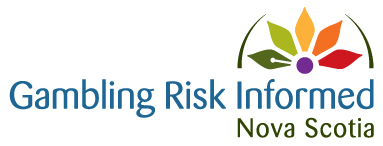Gambling has a long history in Canada. Today it is accepted by many as a valid recreational activity but this was not always the case. In 1892, the original Criminal Code of Canada allowed gambling in specific circumstances, and while lotteries were used to raise money for charity and other social causes, gambling was not a widely approved of. It was considered a threat to morality and religion: it weakened values like spending money wisely and good honest labor, and was also tied to organized crime.
Changes to the Criminal Code of Canada in 1970 gave provinces the power to decide how gambling would look in their areas. In our own province of Nova Scotia, it is today a major industry and a common practice. For people in our communities, gambling is a recreational activity for entertainment by oneself or with friends. For our provincial government, it is a source of revenue added to the general revenue stream.
Nova Scotia’s gambling industry is run by several areas of government and crown corporations. The crown corporation Nova Scotia Gambling Corporation (NSGC) heads the business of gambling in our province. They oversee the work of the businesses Casino Nova Scotia and the Atlantic Lottery Corporation, and give a portion of their earnings back to our Provincial Government. A different sector of government, Service Nova Scotia, is tasked with working to ensure that gambling is run in a fair and ethical way. It issues licenses for businesses to give out lottery tickets or have video lottery machines on their premises. Any gambling that occurs on First Nations’ Reserves is run under agreements between the Mi’kmaq people and the Nova Scotia Office of Aboriginal Affairs. Lastly, the Provincial Government creates policies and regulations that decide how the industry will look in Nova Scotia.
The following video from the Nova Scotia Gaming Corporation outlines the various entities that are involved with gambling in Nova Scotia.
[GRINS does not endorse the messages of any external videos.]
As citizens of Nova Scotia we are all stakeholders for gambling in our province. While gambling is reported to have many benefits, it is important to think deeply about how the industry is run in our communities. For example:
- What are the ethical considerations of using products that are known to cause harm, instead of using general taxes, to meet the needs of citizens?
- What do you think are the issues with different parts of our government legislating, providing, profiting from and ensuring accountability for socially responsible gambling policy?
- Is this a conflict of interest that may prevent clear thinking and “responsible gambling” practices by the government?
Want to learn more about gambling in our province? Visit The Gambling Advertising and the What Happens to the Money Made From Gambling pages!
Sources
- Doherty, C. (2015). Gambling in Nova Scotia: The Regulations, Reinforcements, and Impacts [Scholarly project]. In SemanticScholar.org. Retrieved June 23, 2020, from https://pdfs.semanticscholar.org/3786/1dca24bd4718b666bbe63d70f54f62f5994c.pdf
- Gamingns.ca. (2020, April). Gambling in Nova Scotia. Retrieved June 24, 2020, from https://gamingns.ca/wp-content/uploads/2020/05/1.-Gambling-in-NS-Qtr-4-2019-20.pdf
- McKenna, P. (2008). Life Before and After VLTs. In P. McKenna (Author) & S. Milsom (Ed.), Terminal Damage: The Politics of VLTs in Atlantic Canada (pp. 22-40). Black Point, NS & Winnipeg, MB: Fernwood Pub.
- Sheppard, R.,, & Smith, G., Gambling (2013). In The Canadian Encyclopedia. Retrieved from https://www.thecanadianencyclopedia.ca/en/article/gambling
- Nova Scotia Gaming Corporation. (2019, June 14). Who does what in Nova Scotia’s gaming industry? Retrieved June 30, 2020, from https://www.youtube.com/watch?v=-hJdX6hxhHA&feature=emb_title

